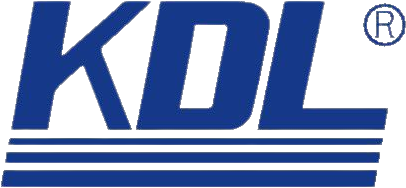
When it comes to medical procedures and pharmaceutical applications, precision and safety are paramount. One tool that has gained significant attention for its ability to enhance both precision and safety is the Low Dead Space Syringe (LDS Syringe). These syringes are design to minimize the residual volume of fluid left in the syringe after injection, which can be crucial in various medical settings. Whether you’re a healthcare professional, a pharmaceutical researcher, or simply someone interested in medical equipment, understanding how to choose the right LDS syringe is essential. Here’s a comprehensive guide to help you make an informed decision.
What is a Low Dead Space Syringe?
A Low Dead Space Syringe is a medical device that significantly reduces the amount of fluid remaining in the syringe after the plunger is fully depressed. This design is particularly useful in various medical scenarios, such as when administering precise doses of medication or when minimizing the risk of contamination and disease transmission. The reduced dead space means that more of the intended dose is delivered, and less is left behind, which can be crucial in treatments where even a small amount of medication can make a significant difference.
Benefits of Choosing a Low Dead Space Syringe
- Reduced Risk of Contamination: By minimizing the dead space, there is less opportunity for residual fluid to mix with contaminants, which is particularly important in procedures where sterility is crucial.
- Improved Accuracy: LDS syringes deliver the exact volume of medication or sample, reducing the risk of underdosing or overdosing.
- Enhanced Safety: In settings where blood-borne pathogens are a concern, such as in intravenous drug use or certain medical procedures, LDS syringes can help reduce the risk of infection transmission.
- Cost-Effectiveness: Less wasted fluid means more efficient use of expensive medications or samples.
Key Factors to Consider When Choosing an Low Dead Space Syringe
When choosing a LDS Syringe, several factors should be taken into account to ensure that you select the most appropriate one for your needs. Here are some key considerations:
1. Accuracy and Precision
Accuracy is paramount in medical settings, especially when dealing with low doses. Look for syringes that offer high precision, with clear and easily readable graduations. Some syringes feature fine graduations, such as 0.1 or even 0.01 milliliter increments, which can be essential for delivering exact doses. Ensure that the syringe you choose has a reliable plunger and barrel that minimizes the risk of dose variation.
2. Material and Durability
The material of the syringe can affect its performance and safety. Manufacturers create most LDS syringes from durable, medical-grade plastic like polypropylene, which resists chemicals. Some manufacturers may also make syringes from glass, which offers high durability but is more prone to breakage. Consider the environment in which you will use the syringe and choose a material that best suits your needs. Additionally, ensure that the syringe is single-use to prevent cross-contamination and maintain sterility.
3. Ergonomic Design
Using an LDS syringe should be comfortable and intuitive, even for those with manual dexterity issues. Look for syringes with ergonomic handles and plungers that are easy to grip and operate. This can help reduce the risk of hand strain and ensure that the syringe can be used effectively in various clinical settings. You will find the KDL Low Dead Space Syringe to be an innovative tool designed to minimize wasted medication, enhance dosing accuracy, and reduce the risk of cross-contamination, thereby optimizing patient care and safety in clinical settings.
4. Luer Lock vs. Slip Tip
LDS syringes come with different types of tips, primarily luer lock and slip tip. Luer lock tips provide a secure connection, reducing the risk of the needle detaching during use. This is particularly important for procedures that require more force or movement, such as injections into dense tissues. Slip tips, on the other hand, are easier to attach and detach, making them suitable for quick, routine administrations. Consider the specific needs of your procedure and choose the tip type that offers the best balance of security and convenience.
5. Compatibility with Medications
Not all syringes are compatible with every type of medication. Some medications may react with certain materials, leading to degradation or inaccurate dosing. Check the manufacturer’s specifications to ensure that the syringe you select is compatible with the medications you will be using. This is especially important for sensitive or corrosive drugs.
6. Size and Capacity
LDS syringes come in various sizes, each designed for different dose ranges. For example, a 1-milliliter syringe is suitable for very small doses, while a 5-milliliter syringe can handle larger volumes. Choose a syringe that matches the dose requirements of your medication to ensure that you can measure and deliver the correct amount without waste or risk of overdosing.
7. Sterility and Packaging
Sterility is critical in medical settings. Ensure that the LDS syringes you choose are individually packaged and sterilized. Some syringes come in blister packs, which provide an additional layer of protection against contamination. Check the expiration date on the packaging to ensure that the syringes are still sterile and safe to use.
8. Cost-Effectiveness
While cost is a significant factor, it should not be the only one. Consider the overall value of the syringe, including its accuracy, durability, and compatibility. Sometimes, using a slightly more expensive syringe can provide better performance and reduce the risk of errors, making it more cost-effective in the long run. However, if budget constraints are a concern, look for cost-effective options from reputable manufacturers.
9. Regulatory Compliance
Ensure that the LDS syringes you choose comply with relevant regulatory standards, such as ISO 7886-1 for syringes. Compliance with these standards guarantees that the syringes meet specific requirements for safety, accuracy, and performance. This is especially important in healthcare settings where adherence to regulatory guidelines is mandatory.
Steps to Select the Right Low Dead Space Syringe
To ensure you select the right Low Dead Space Syringe, follow these steps:
- Assess Your Needs: Determine the specific requirements of your medical procedures. Consider factors such as the type of medication, the required dose accuracy, and the safety features you need.
- Research Manufacturers: Look into the reputation and reliability of different manufacturers. Read reviews, compare products, and consider the feedback from other healthcare professionals.
- Consult with Experts: If you are unsure about the best syringe for your needs, consult with medical experts or professionals who have experience with Low Dead Space Syringes. They can provide valuable insights and recommendations.
- Consider Cost: While cost is an important factor, it should not be the only one. Invest in a syringe that offers the best balance of quality, safety, and affordability.
- Check for Compliance: Ensure that the relevant authorities approve the syringe and that it meets the necessary regulatory standards for use in your region. Compliance with standards like ISO 7886-1 and 7886-2 is crucial for safety and reliability.
Common Applications of Low Dead Space Syringes
- Pharmaceutical Administration: Hospitals, clinics, and pharmacies commonly use LDS Syringes to administer high-potency drugs like insulin, chemotherapy agents, and hormones.
- Laboratory Research: Researchers use LDS Syringes in experimental settings for accurate dosing and for preparing precise solutions.
- Blood Sampling: LDS Syringes are ideal for collecting blood samples, as they minimize the risk of sample dilution and ensure accurate results.
Conclusion
Choosing the right Low Dead Space Syringe is a critical decision that can significantly impact the precision, efficiency, and safety of your medical or laboratory procedures. By considering the intended use, volume requirements, material and sterility, needle type, and manufacturer reputation, you can make an informed choice that meets your specific needs. Manufacturers like KDL offer high-quality LDS Syringes that are trusted by healthcare professionals worldwide. Take the time to evaluate your options, and you’ll find that the right Low Dead Space Syringe can make a world of difference in your work.
Remember, precision and reliability are key in medical and pharmaceutical applications, and a well-chosen LDS Syringe can help you achieve both.

